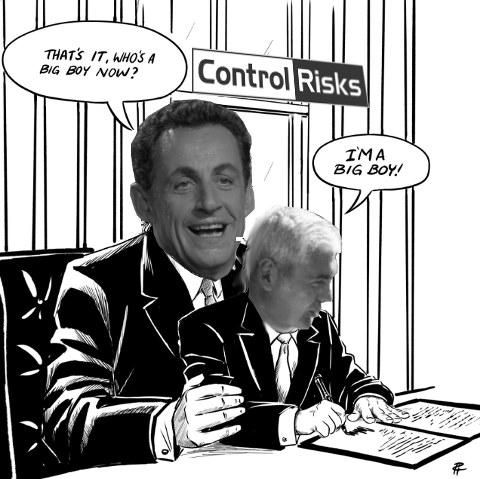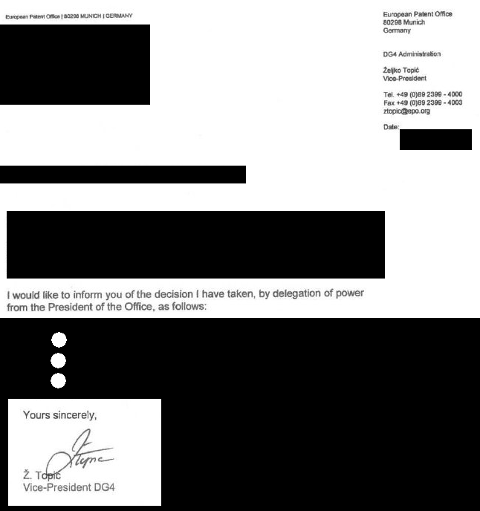Like outlaws still run the Office


Summary: Last week's decision (T1063/18, EPO Technical Board of Appeal 3.3.04) shows that there's still a long way to go before the Office and the Organisation as a whole fulfil their obligation to those who birthed the Organisation in the first place
EUROPEAN Patents (EPs) which threaten lives and software patents that are EPs were mentioned in our last post. How far is António Campinos willing to go? How far will Iancu at the U.S. Patent and Trademark Office (USPTO) go?
How about patents on
life itself?
It is widely known that this subject is 'controversial', by which we mean on one side we have large corporations like Monsanto and on the other side virtually everyone else, i.e. the public (those
not striving to 'own' all lives using bizarre patents).
Last week there was some disturbing development/news which made one wonder if judges had been having dinners at Bayer or something like that. There has been no word on this decision from the EPO's Twitter account, which has been unusually quiet lately (the past few days). Those who covered the decision have been almost without exception patent maximalists; the same goes for comments. Apparently all that matters is how much they can profit from it, not how much sense it actually makes. Miquel Montañá
wrote about this yesterday (
"The Political Dimension of Tomatoes, Broccoli and Peppers"); it's about the incredible stance of the European Patent Office's (
EPO) Board of Appeal (BoA), which decided that patents on seeds, pigs, plants etc. are acceptable as if people "invented" these. Does the EPC not matter anymore?
Here's a new comment on the connection between the EU and the EPO:
In response to 'EPO is not EU...', please see http://patentblog.kluweriplaw.com/2018/05/08/eu-bring-unitary-patent-system-control/
Already the economic and academic arguments are being made as can be seen in that article. The EPO is being entrusted with the Unitary Patent, but that will bring the responsibility of harmonising with EU. It does not make sense to have 2 different sets of appeal systems in Europe (The EPO Boards and the CJEU). A single system of control is sensible, and I am sure will come into being at some point.
"Finally, as has already been pointed out, Opinion 1/09 closes the door to the EPO becoming an EU institution. Indeed, it is not 100% clear whether the EPO as it currently stands is compliant with EU law."
Here's another comment of interest:
I would like to address a number of inaccuracies in (implied) statements in your comment from 7 December.
Firstly, it is the Member States that are bound by the Biotech Directive. The role of the courts is to interpret that legislation, ie to determine the meaning of rules that bind the Member States (and other individuals / entities towards which those rules are directed).
Secondly, only the CJEU is able to provide a binding interpretation of the Biotech Directive. Whilst the views of the Commission and of the Member States may be of interest, they are meaningless if they do not align with the CJEU's interpretation of that Directive.
Thirdly, there has already been national litigation (in the Netherlands) on relevant claims. Contrary to what you asserted would be the inevitable result, those claims were held by the Dutch court not to be excluded from patentability.
Finally, as has already been pointed out, Opinion 1/09 closes the door to the EPO becoming an EU institution. Indeed, it is not 100% clear whether the EPO as it currently stands is compliant with EU law. In this respect, a positive aspect of the Board of Appeal's decision is that it avoided an outcome that would have been a blatant example of non-compliance with EU law (specifically, with Article 267 TFEU, which is essential to preserving the autonomy and supremacy of EU law).
If the Biotech Directive does not matter and the EPC does not matter either, what does that make the EPO? An outlaw organisation? An organism? If it's an organism, maybe people can apply for a patent on it.
"There is a large uncertainty regarding patenting of plants and animals exclusively obtained by means of essentially biological processes in Europe," Valea AB's Joanna Applequist and Karolina Wiktorson
wrote earlier this week. Over at Mondaq, J A Kemp (
promoter of antibody patents) seemed rather happy to see this. "We understand that, at an oral hearing held on 5 December 2018 in relation to case T1063/18 concerning an application entitled "New pepper plants and fruits with improved nutritional value", EPO Technical Board of Appeal 3.3.04 held that Rule 28(2) EPC introduced in July 2017 is in conflict with Article 53(b) EPC. Once confirmed, this will have important implications for EPO practice regarding inventions in the field of plant (and animal) breeding as in principle the Rule can no longer stand or be used to reject patent applications if it does not conform to the Article it is supposed to implement,"
J A Kemp's Andrew Bentham wrote.
Patent propaganda site
Managing IP chose a headline that says
“Plants patentable in Europe”. How misleading. It's not actually over yet. Moreover, as we
explained some days ago, the EPO is simply enraging farmers, who have already protested such moves. The ramifications remain to be seen, but for a patent office that just strives to increase so-called 'production' this may seem (artifiically, on the surface) like a positive development. At what cost?
⬆


